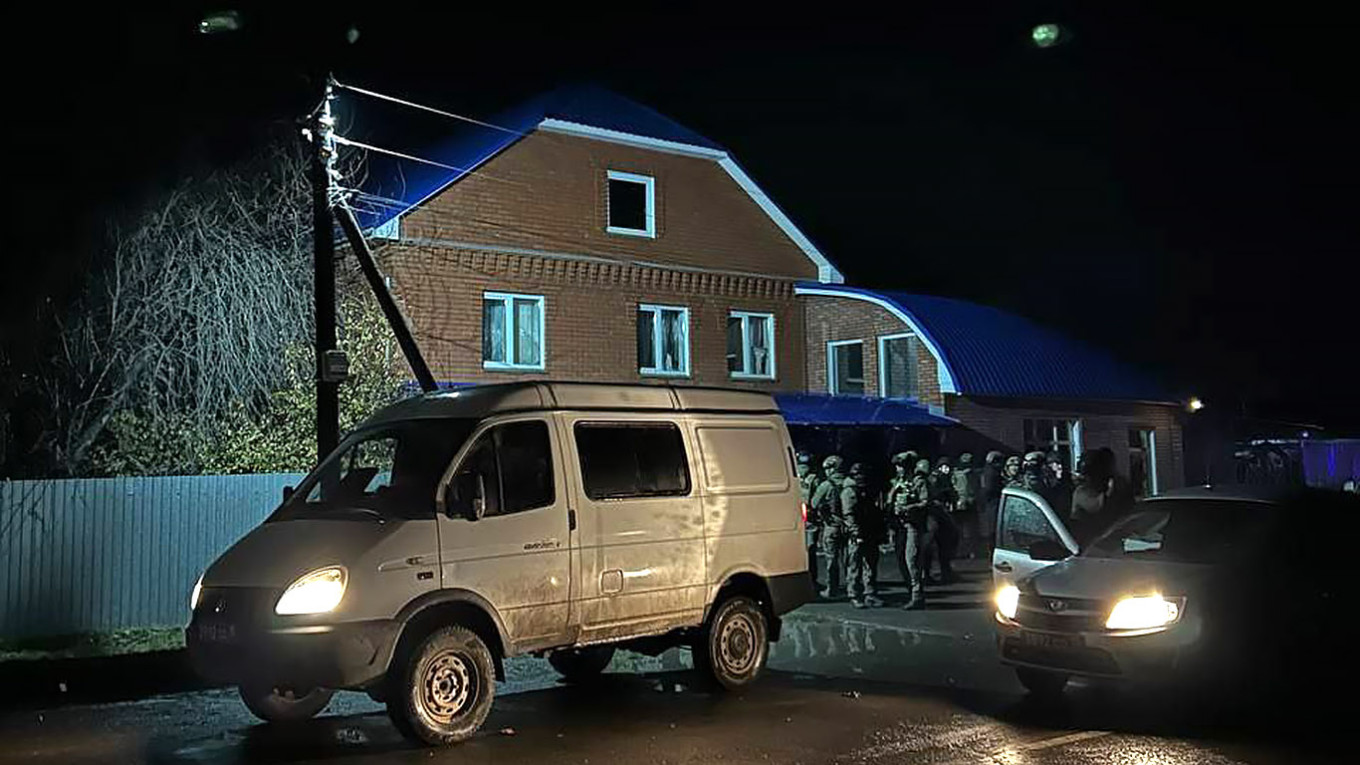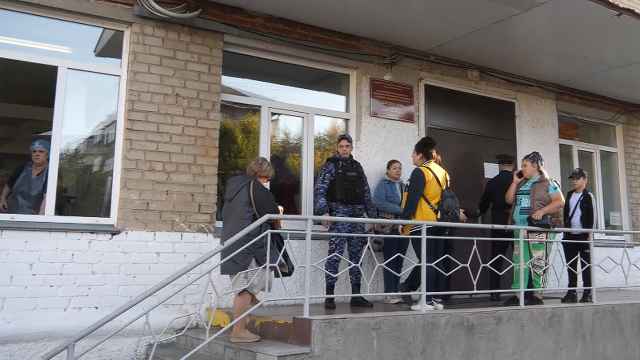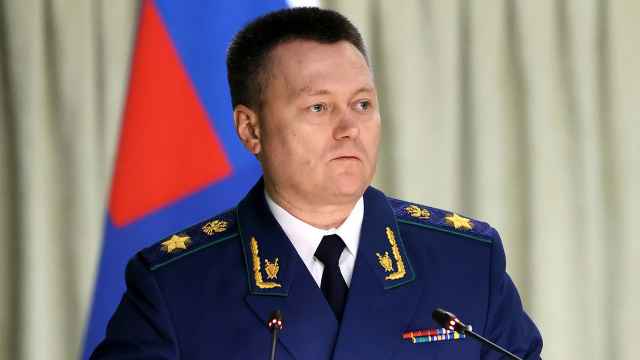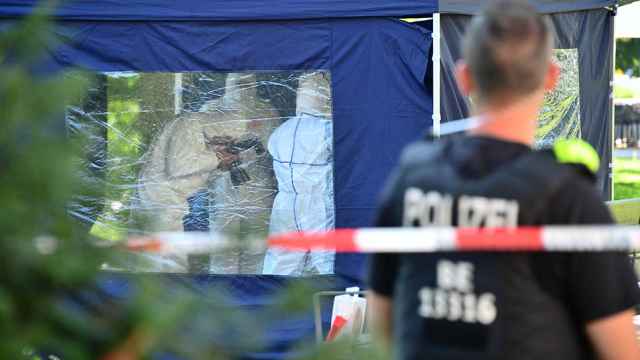Enraged residents in Russia’s Chelyabinsk region clashed with riot police Thursday night after the stabbing death of a local woman, which both authorities and residents blamed on members of the Romani community.
Local media identified the victim as Yelena Sarafanova, a mother of two and taxi driver in the town of Korkino. Her body was discovered on Wednesday with multiple stab wounds, and co-workers said she was last seen giving a ride to two young Romani brothers.
Regional investigators said Thursday that they had arrested a 17-year-old male resident of Korkino on suspicion of stabbing Sarafanova, who had been driving him home as a passenger.
“A conflict arose between the victim and the suspect, who was traveling by taxi to his place of residence, during which the suspect inflicted at least four stab wounds to the woman’s chest,” investigators said in a statement.
Local media later reported that police were “looking into” a second Romani man suspected of being involved in Sarafanova’s murder.
On Thursday night, a crowd of angry residents gathered outside homes believed to belong to Romani residents, smashing windows and damaging property. Riot police were dispatched to the area, where they clashed with the crowd.
More than 40 residents were detained and charged with petty hooliganism following the unrest in Korkino.
Medics reported treating two people with gunshot wounds. A 58-year-old Roma man was arrested on suspicion of attempted murder for allegedly firing on the crowd outside his home.
Alexander Bastrykin, head of Russia’s Investigative Committee, ordered federal investigators to take over the investigation into Sarafanova’s murder.
In a statement, the Investigative Committee said that “local residents had long-standing concerns about the Romani community’s unlawful behavior, which has not been resolved.”
A Message from The Moscow Times:
Dear readers,
We are facing unprecedented challenges. Russia's Prosecutor General's Office has designated The Moscow Times as an "undesirable" organization, criminalizing our work and putting our staff at risk of prosecution. This follows our earlier unjust labeling as a "foreign agent."
These actions are direct attempts to silence independent journalism in Russia. The authorities claim our work "discredits the decisions of the Russian leadership." We see things differently: we strive to provide accurate, unbiased reporting on Russia.
We, the journalists of The Moscow Times, refuse to be silenced. But to continue our work, we need your help.
Your support, no matter how small, makes a world of difference. If you can, please support us monthly starting from just $2. It's quick to set up, and every contribution makes a significant impact.
By supporting The Moscow Times, you're defending open, independent journalism in the face of repression. Thank you for standing with us.
Remind me later.






